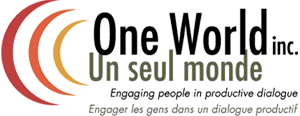Prepare For Your Dialogue Session With Issue Framing
 Prior to a successful consultation or other dialogue on a complex or challenging issue, an important preparatory step is to undertake what is called issue framing. The issue framing process names the problem or issue to be addressed and also develops three or four different options or approaches as to how the issue might be handled. The challenge with issue framing is that any options proposed must be viable. Significant up front work and research is therefore often required to both frame the issue and present options in a way that these can create an engaging and meaningful, platform for discussion.
Prior to a successful consultation or other dialogue on a complex or challenging issue, an important preparatory step is to undertake what is called issue framing. The issue framing process names the problem or issue to be addressed and also develops three or four different options or approaches as to how the issue might be handled. The challenge with issue framing is that any options proposed must be viable. Significant up front work and research is therefore often required to both frame the issue and present options in a way that these can create an engaging and meaningful, platform for discussion.
The Goal in Issue Framing
Issue framing occurs prior to the dialogue session taking place. After identifying the specific ways of looking at the issue, each option or approach (sometimes presented as scenario’s) is tested to make sure it’s not only viable and will resonate with participants, but also, and most importantly, that it will help to stimulate interesting conversation. A city consultation on a major municipal issue for example, might require focus group testing on the issues beforehand.
The end goal in issue framing is to stimulate the kind of discussion that can help participants identify potential for common ground and agreement on creative solutions to the issue at hand. Generally, within each of the different approaches, there are often questions that participants would like to explore further. Ideally after going through the cycle of looking at the issue and discussing the various options, the group will be able to decide there’s something they can agree on. The issue framing process provides the framework for taking participants through each of the available choices with the end objective of reaching “common ground” i.e. agreement on ways forward to address the problem or challenge at hand.
What Happens If It’s Not Done Right
When the issue framing process has been well done then the actual dialogue process must follow suit. It is essential, for example, that equal time for discussion is given to each way of looking at a problem and that facilitation is conducted in a way that ensures all people have the chance to explore the different approaches. A successful process presents the problem and guides participants through the multiple approaches. If the discussion is skewed or slanted towards one approach, people can feel as though they are being pulled in one direction or another. In addition, it’s essential that within each choice, the unique issues and concerns are clear.
As mentioned in my previous article, regardless of the type of consultation or engagement process, people need to come in with enough basic knowledge that they’re empowered to engage. By setting the stage ahead of time, it’s possible to ensure the level of knowledge about a problem is the same and people will be prepared to listen and participate. As you take them through the choices, making certain they have the same opportunities to talk about their own experiences can help to humanize the process.
Why Issue Framing is Important – Finding Common Ground
Issue framing is a critical preparatory step to conducting an effective engagement process. It is instrumental in paving the way and developing a framework for people to listen to one another, to hear individual stories, to appreciate the unique and varied experiences and perspective in the room, and explore a range of possible solutions. With community issues in particular, it’s common to have a variety of people and perspectives, from activists looking for practical solutions to those who simply want to hear fresh ideas on an important issue. Issue framing helps structure the kind of consultation or other dialogue where all participants can undertake engaging conversations and work together to pursue common ground so that in the end, everyone can leave the session with a positive attitude and the presumption that the issue will be resolved in an appropriate and equitable way.
